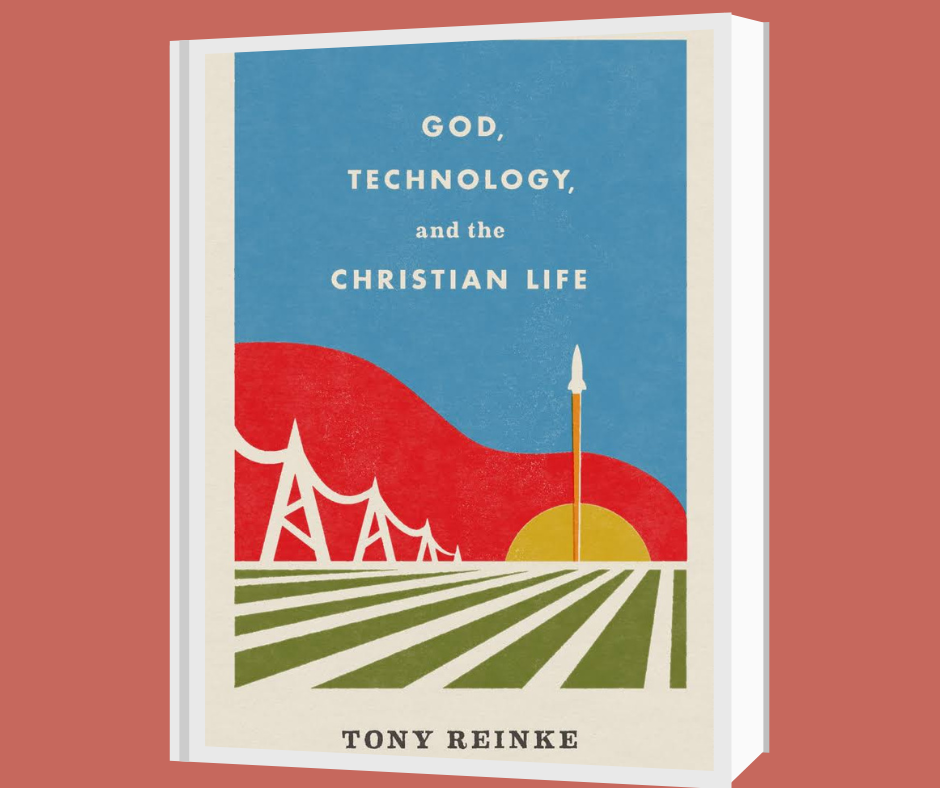Book Reviews
God, Technology, and the Christian Life, by Tony Reinke | Review by Rosa Byler

Tony Reinke has written about technology in Competing Spectacles and 12 Ways Your Phone Is Changing You. This book is his “biblical theology of technology.” Note the word order of the title; most of us tend to start from where we are, observe what is happening around us, and make conclusions about what we should do—often without looking to scripture for specifics. Reinke identifies technology as early as Genesis, and his portrayal of God as the originator, enabler, and regulator of it all is refreshing.
Chapter titles pose six questions: What is technology? What is God’s relationship to technology? Where do our technologies come from? What can technology never accomplish? When do our technologies end? And finally, how should we use technology today? Along the way, Reinke also challenges twelve common “Christian” myths about technology. Most involve faulty perspectives on God’s sovereignty and careless generalizations about both innovators and innovations.
Reinke approaches the study as a discussion, presenting nine scripture passages and a panel of thinkers, both historic (Augustine, John Calvin, Abraham Kuyper…) and contemporary (Elon Musk, Wendell Berry, Kevin Kelly…), to interact with. His advice, to read the indented sections of scripture carefully rather than skimming them, won my admittedly sheepish approval and compliance.
Technology is the art of applying what we know (science) to what we can do (power) to develop tools and techniques that multiply or augment our abilities. The church has not always agreed on whether this is a good thing, and certainly some agnostic tech-lovers have assumed faith and science to be in opposition to each other. However, Reinke says Christians who think technological skill threatens faith also “sell God short.”
Two early tech stories demonstrate technology’s main applications, still apparent today: God graciously saves people from the Flood by innovative techniques, and man uses cutting-edge technology in rebellion at Babel. Reinke suggests that God intentionally “keyed in” a diversity there that continues to restrain humanity from some future universal adoption of…technology, for one. This chapter contemplates God’s governance over not only beneficial technologies but technologies of destruction. “Divine logic [is] very different from how we naturally reason things out.” (50)
Isaiah 28:23-29 describes God Himself teaching people about farming, the “base technology behind all other technologies.” (95) Man does not create new technology; he observes creation patterns and builds on previous discoveries as simple as planting crops or making more durable pottery. God creates people with specific abilities and decides when the next level will be discovered. (The recent explosion of knowledge will have eschatologists on the edges of their chairs; Reinke mostly sticks to the subject at hand.) He denies Darwinian evolution as an explanation for life but finds helpful language for technological progress in the theory. Gen. 4 demonstrates that not only do unbelievers come up with great ideas, but God seems to give them an extra share of “innovative brilliance.” (137)
Technology can be seen as God’s gracious gift to help alleviate the discomforts of the Fall or as a means of taking control—of “myself, my body, my gender…my lifespan, my productivity, my potential.” (164) Ultimately, technology creates new uncertainties that destroy the illusion of control (security breaches, stolen data) and even though it has become for many the newest religion, it can never bring spiritual fulfillment and soul satisfaction—or overcome death.
Reinke pictures the “end of technology” taking place in cities, the epicenters of innovation. Settlements of human beings begin with goodwill, offering connections and shared skills for mutual benefit. Yet cities—into which Christians can integrate and become good influences, by their rightly-ordered worship that resists the very spirit of the city!—eventually become concentrations of arrogance from which flight is the only option.
How should we use technology? With gratitude and caution. Technologies are not in themselves evil but tend to develop more quickly than their ethics for wise use. A life of faith is the Christian’s goal in any situation; scripture is, as always, the guide for that. Reinke’s fourteen guides to ethical convictions include “Expect to witness technical overreach and commit to correcting as we go”; “Get comfortable with tech minimalism”; “Expect God to guide, squelch, and hack human technology”; and “Refuse to concede our Sabbath rest to the demands of technology.” (243-288)
As an intrigued but somewhat reluctant/suspicious user of new technologies, I thoroughly enjoyed this study, with the brief exception of the author’s conjectures about the future. Having grown up under a surfeit of eschatological speculation, I nearly put the book down at that point—but readers under forty will probably not bat an eye. Although an admitted tech advocate, Reinke is willing to look at both the advantages and the downsides honestly and biblically and is, in addition, a good writer.